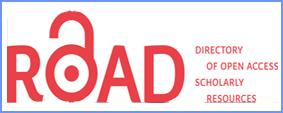DIALOG ILMU DAN AGAMA DALAM PENDIDIKAN ISLAM DI INDONESIA
Abstract
ABSTRACT
This study discusses the relationship between science and religion, from Western thought to Islamic thought. There are four typologies that describe the relationship between science and religion based on the thinking of Ian Gramer Barbour, namely: conflict, independence, dialogue, and integration. In Islamic studies, the Islamization of science was pioneered by Sayyed Hosein Nasr. Islamization of science continues to grow until now and penetrated into Islamic education in Indonesia. This type of research is library research. Primary sources come from books written directly by Ian Gramer Barbour and books on the study of Islamization of Science. This study uses a philosophical approach, which is an approach that is carried out by analyzing the relationship between science and religion from the thoughts of various Western philosophers and Muslim philosophers. The analysis based on the thoughts of philosophers aims to implement scientific theories and methods into the problems of Islamic education in Indonesia. The results of this study are: to describe the relationship between science and religion based on the history of the development of human thought, starting from the Middle Ages, the Islamic Golden Age, and the Modern-Contemporary Age. This study also analyzes the scientific method in Islamic education in Indonesia as an application of the discourse of Islamization of knowledge that has developed from 1977 to the present. This research concludes that there is a dialogue between science and religion in reducing the conflict between dynamic scientific discoveries and dogmatic theological beliefs. The implication of this research is to build awareness of dialogue between science and religion in order to create an attitude of mutual respect and respect between scientists and clergy. Dialogue is needed to compare scientific and technological discoveries with theological beliefs and religious dogmas. Ethics and Fiqh is one aspect that controls and reconciles scientific discoveries with religious dogma.
Downloads
References
———. When Science Meets Religion. New York: Harper San-Farncisco, 2000.
Garwan, Muhammad Sakti. “Urgensi Islamisasi Ilmu Syed Naquib Al-Attas Dalam Upaya Deskonstruksi Ilmu Hermeneutika Al-Qur’an.” Substantia: Jurnal Ilmu-Ilmu Ushuluddin 21, no. 2 (2019): 125.
Ghufron, M. “ISLAMISASI ILMU PENGETAHUAN (Perspektif Sejarah, Kontroversi Dan Perkembangannya).” Jurnal Urwatul Wutsqo 1, no. 1 (2012).
Hanifah, Umi. “Islamisasi Ilmu Pengetahuan Kontemporer (Konsep Integrasi Keilmuan Di Universitas-Universitas Islam Indonesia.” TADRIS: Jurnal Pendidikan Islam 13, no. 2 (2018): 273–294.
Hsubky, Badruddin. “Islamisasi Ilmu Pengetahuan.” Edukasia Islamika 11, no. 2 (2013): 64–74. http://150.107.142.43/index.php/FIKRAH/article/view/120.
Janan Asifudin, Ahmad. “Manajemen Pendidikan Untuk Pondok Pesantren.” MANAGERIA: Jurnal Manajemen Pendidikan Islam 1, no. 2 (2017): 355–366.
Nasr, Seyyed Hossein. Civilization In Islam. Development. Vol. 134, 2007.
Sumantri, Arga. “Wamenag: Pesantren Jawaban Meningkatnya Minat Belajar Agama.” Medcom.Id, n.d. https://www.medcom.id/pendidikan/news-pendidikan/ybJWLGWk-wamenag-pesantren-jawaban-meningkatnya-minat-belajar-agama?
Wiyani, Novan Ardi. “Desain Manajemen Pendidikan Karakterdi Madrasah.” Jurnal Pemikiran Alternatif Pendidikan 17, no. 1 (2012): 129–140.




.png)








